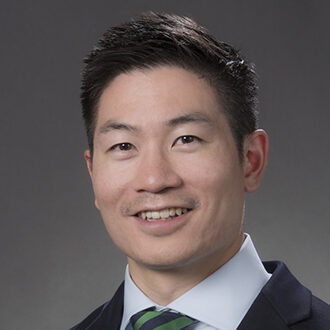I sat in my clinic office, staring blankly at the endless stack of patient charts piled on my desk. With building administrative burdens and meetings awaiting my clinic to finish, I could feel my energy draining. The enthusiasm I once had for solving each patient’s unique puzzle had been replaced by an overwhelming sense of fatigue.
This wasn’t just exhaustion—it was something deeper. Burnout had crept in gradually and now settled firmly in my bones.
Unfortunately, I’m not alone. The relentless pace of orthopedic practice is pushing surgeons to the brink, forcing us to navigate the growing toll of burnout in a system that demands more than it gives back.
The Growing Burden of Surgeon Burnout
Work-related burnout is a state of chronic stress that harms well-being and patient care, characterized emotional exhaustion, depersonalization, and a reduced sense of personal accomplishment. Nearly half of orthopaedic surgeons have experienced symptoms of burnout, a staggering statistic that underscores the urgency of the issue.
Key contributors to surgeon burnout include:
- Increasing administrative burdens and documentation requirements
- Higher patient volumes, including many who have not been properly screened
- Loss of autonomy due to a growing focus on productivity metrics
- Difficult interactions with insurance and regulatory systems
Beyond these systemic stressors, surgeons face long hours, high-stakes decision-making, malpractice risk, financial pressures, and a growing bureaucratic load. A profession built on dedication to patient care is now struggling under the weight of an unsustainable system.
Burnout Impacts Both Surgeons and Patients
Surgeon burnout has serious consequences—not only for individual well-being but also for patient safety and care quality. Studies show that for every point increase in depersonalization on the Maslach Burnout Inventory, the likelihood of medical errors rise by 11%. A similar increase in emotional exhaustion raises the risk by 5%.
Even in the absence of medical errors, burnout leads to decreased compassion, more transactional patient interactions, and an overall decline in care quality. Left unaddressed, it contributes to higher rates of absenteeism, turnover, and disengagement across the profession.
TailorCare: A Pre-Surgical Optimization Model to Alleviate Burnout
One of the leading drivers of orthopedic surgeon burnout is the increasing administrative burden associated with higher patient volumes— many of whom do not require surgery. As clinical loads rise to offset lower reimbursement rates, surgeons are seeing more patients who could be better served by non-surgical healthcare providers such as primary care physicians, sports medicine specialists, physical therapists, physiatrists, and pain management experts.
TailorCare partners with orthopedic groups to streamline this process, ensuring that surgeons receive pre-screened, surgically appropriate patients. Through a care navigation model, TailorCare helps patients access the right provider at the right time, reducing unnecessary appointments, eliminating redundant tests, and preventing cycles of frustration that delay effective treatment.
A guiding tenet of orthopedic surgery is providing patients with the right care at the right time. This approach benefits both surgeons and patients. By alleviating administrative burdens and optimizing patient pathways, TailorCare helps restore balance in clinical practice—allowing surgeons to focus on those who truly need surgical intervention while ensuring all patients receive the highest quality care.
A Path Forward
Surgeon burnout is not an individual failing—it is a systemic issue requiring systemic solutions. By integrating care navigation and pre-surgical optimization, we can alleviate unnecessary stress, enhance efficiency, and ultimately improve outcomes for both providers and patients.
TailorCare believes in restoring confidence in the healthcare system, respecting surgeons’ time, and improving the patient experience. Together, we can create a more sustainable future for orthopedic care—one where surgeons can focus on what they do best: delivering life-changing treatment to those who need it most.

By Philip Louie, MD – TailorCare Clinical Advisory Board Member
Philip Louie, MD is a member of the TailorCare Clinical Advisory Board and a Spine Surgeon at Virginia Mason Franciscan Health, where he is the Medical Director of Research and Academics for the Center of Neurosciences and Spine. He also serves as the Chief Operating Officer and Co-Founder of STREAMD (AI-powered physician chatbots, clinically proven to engage patients and improve outcomes after surgery).
He received his Bachelors Degree in Business Administration and Medical Degree (MD) at the University of Washington. He subsequently completed his Orthopaedic Surgery Residency at Rush University Medical Center with Midwest Orthopaedics in Chicago, IL and a Spine Fellowship at the Hospital for Special Surgery in New York City. He is a Candidate in the Wharton MBA Program for Executives. He has authored over 140 peer-reviewed publications as well as numerous abstracts, book chapters, and regularly presents research at both national and international conferences.
